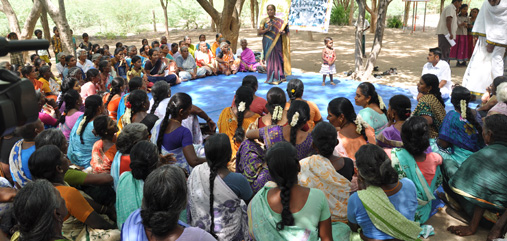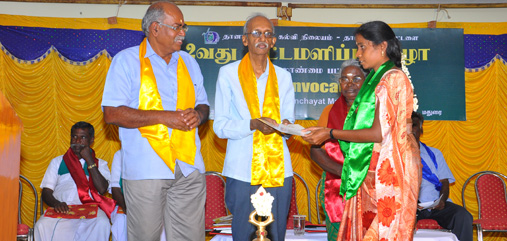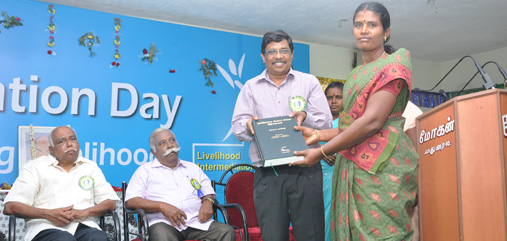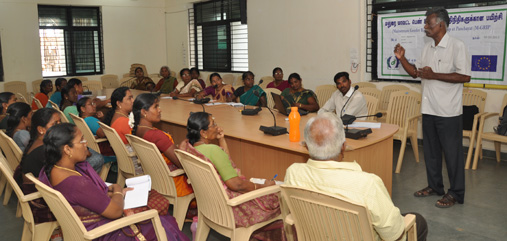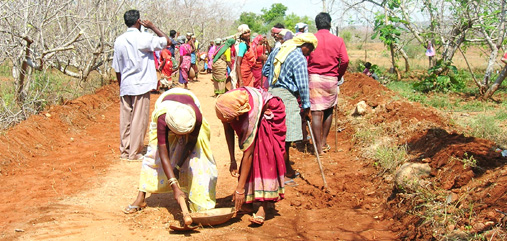About Us
Background
Local Governance is our heritage. Panchayat raj institutions in India have the history of more than 2000 years. From Vedic period – Saba / Smithy system onwards it has great significance in village administration. In the period of Vijayanagar kingdom, the introduction of “Maniyam” system for tax collection in village governance has led to centralization of power. Then, slowly our native knowledge in village governance started to deteriorate. In the initial phase of English government, some initiations were taken on revitalizing the local self-governance system. But, it doesn’t allowed common people to participate. In the mean time, our father of nation, Gandhi was insisting the importance of local self-government throughout his life. But after independence, the concept of Panchayat raj institution (PRI) was given very less importance in the constitution. After a long struggle, in 1992, the rural local self-government was constitutionally approved by 73rd Amendment.
The 73rd constitutional amendment generated great expectations. It was considered as radical in nature, for it promised institutionalization of a third stratum of government at the local level. As the result of 73rd and 74th Amendment, now we have about 3.2 million representatives as people leaders in grassroots’ institutions. Almost 19 years have passed after the 73rd Amendment, but the challenges remain same. Still we have several grey areas to be addressed with the grassroots’ democracy. Establishing institutions of self-government at state level have been, indeed far reaching. Present Panchayat system in vicious circle with series of limitations. Such as, lack of democratic practices in the field operations, poor participation in Gram Saba and other people’s forum, poor status and contribution from weaker section and lack of self sufficient mechanisms.
DHAN Foundation launched the Panchayat Programme as a thematic programme during the year 2003 to strengthen the grass roots democracy through which addressing the issue of poverty. Panchayat programme was experimentally started in 25 panchayats of seven blocks in five districts. During the experimentation phase, various initiatives were taken towards introducing and practicing of democratic practices, capacity building initiatives and integrating the people institutions with the panchayat institutions. Presently, it is in the next phase of expanding the programme to more number of blocks and deepening the programme and reached the stage of programme. It could build contacts with other resource institutions from Gov’t and non Gov’t sectors. It could bring a panchayat manual for Tamilnadu panchayat Act recently and it could be the contribution of this programme to the sector. It takes steps for building the capacity of all the women presidents in the five working districts viz. Madurai, Dindugal, Theni, Cuddalore and Nagapattinam. It provides mass scale panchayat education programme through training programme to the members and leaders of the DHAN people institution which would enable them to understand more what the panchayat systems and to make them actively involve in the panchayat activities.
In this background, DHAN Panchayat Development Programme is get in to prepare the strategic plan for next five years so as to accomplish the scaling up of panchayat programme. Towards arriving the strategic plan, there was participatory process where all stakeholders of panchayat programme could participate. There were series of meetings among the programme staffs, Associates, panchayat presidents etc and evolved the draft of the strategic plan. The final draft was wet in the strategic forum meeting and took their suggestion for finalize the document.
Goal
Bringing grassroots democracy in Panchayat raj institutions for development of poor and weaker section, ensuring social justice, attaining direct democracy in Panchayat Raj System and making economically self sustainable panchayats.
Purpose
Build direct democracy and good governance in local governments and people institutions for poverty reduction, social justice and self reliance.
